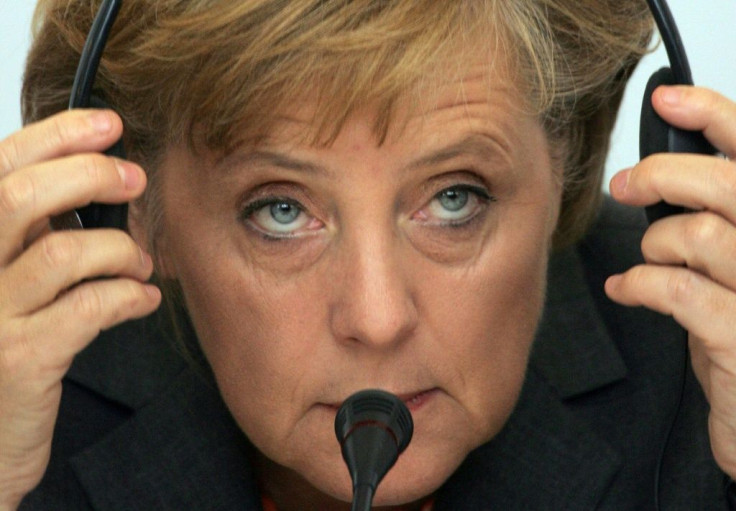Recession Fears Growing In Europe And US As Germany Narrowly Avoids Q3 Contraction

Europe is slowly sliding into a recession and that malaise could spread across the Atlantic, according to Washington Post columnist Robert Samuelson.
Samuelson noted that in the third quarter, gross domestic product grew by only 0.2% in the eurozone and only 0.1% in Germany, the continent’s biggest economy. This comes after shrinking by 0.2% in the second quarter. Samuelson warned that this kind of sluggish data augurs “higher unemployment, lower confidence and squeezed profits” as well as “greater distrust of government, more nationalism (including more suspicion of immigrants) and rising alienation.”
Samuelson posits that the U.S. is in a similar bind, where the recovery is fading.
“The basic problem on both sides of the Atlantic is that economies have become dependent on government-created ‘stimulus’ policies -- whether low interest rates supplied by central banks or huge budget deficits created by politicians -- rather than being able to generate spontaneous internal growth,” he wrote.
However, these policies are no longer working, he warned.
“In both the United States and Europe, low interest rates are proving less and less effective in expanding GDP and employment,” he wrote. “Whatever the initial effect of low interest rates and the [quantitative] programs of bond-buying, the law of diminishing returns seems to have set in.”
Samuelson cited a report by Jean Pisani-Ferry of the Peterson Institute for International Economics who wrote: “Growth in the euro area has slowed since the beginning of 2018, and the risk of a recession is growing. Yet the [European Central Bank] has barely any space left for monetary stimulus.”
However, Germany’s central bank Bundesbank, does not think Germany is slipping into recession while conceding the economy is stagnating.
Bundesbank noted that Germany’s 0.1% GDP growth in the third quarter was actually better than expected, suggesting some stabilization.
“The slowdown of the German economy will probably continue in the fourth quarter of 2019,” Bundesbank said in an economic report. “However, it is not likely to intensify markedly. From today’s vantage point, there is no reason to fear that Germany will slide into recession.”
The central bank also indicated it is seeing some signs of stabilization in industrial demand and remarked on the resilience of the domestic economy.
“Because the labor market is likely to remain fairly robust and wages are expected to grow considerably, households’ income prospects should remain favorable,” Bundesbank added.
U.S. Fears
Meanwhile, a survey conducted in the third quarter by Allianz Life Insurance Company of North America, revealed that half of Americans fear a recession is imminent, up from 46% in the first quarter of this year. In the same vein, 48% of respondents fear a large market crash, up from 46% in the first quarter.
Allianz Life said the findings suggest consumers are “increasingly anxious about the effects of market volatility on their finances.”
“With major fluctuations over the past quarter, it’s not surprising that Americans are skittish about investing and worried that a market crash and recession might be around the corner,” said Kelly LaVigne, vice president of advanced markets, Allianz Life.
© Copyright IBTimes 2025. All rights reserved.





















